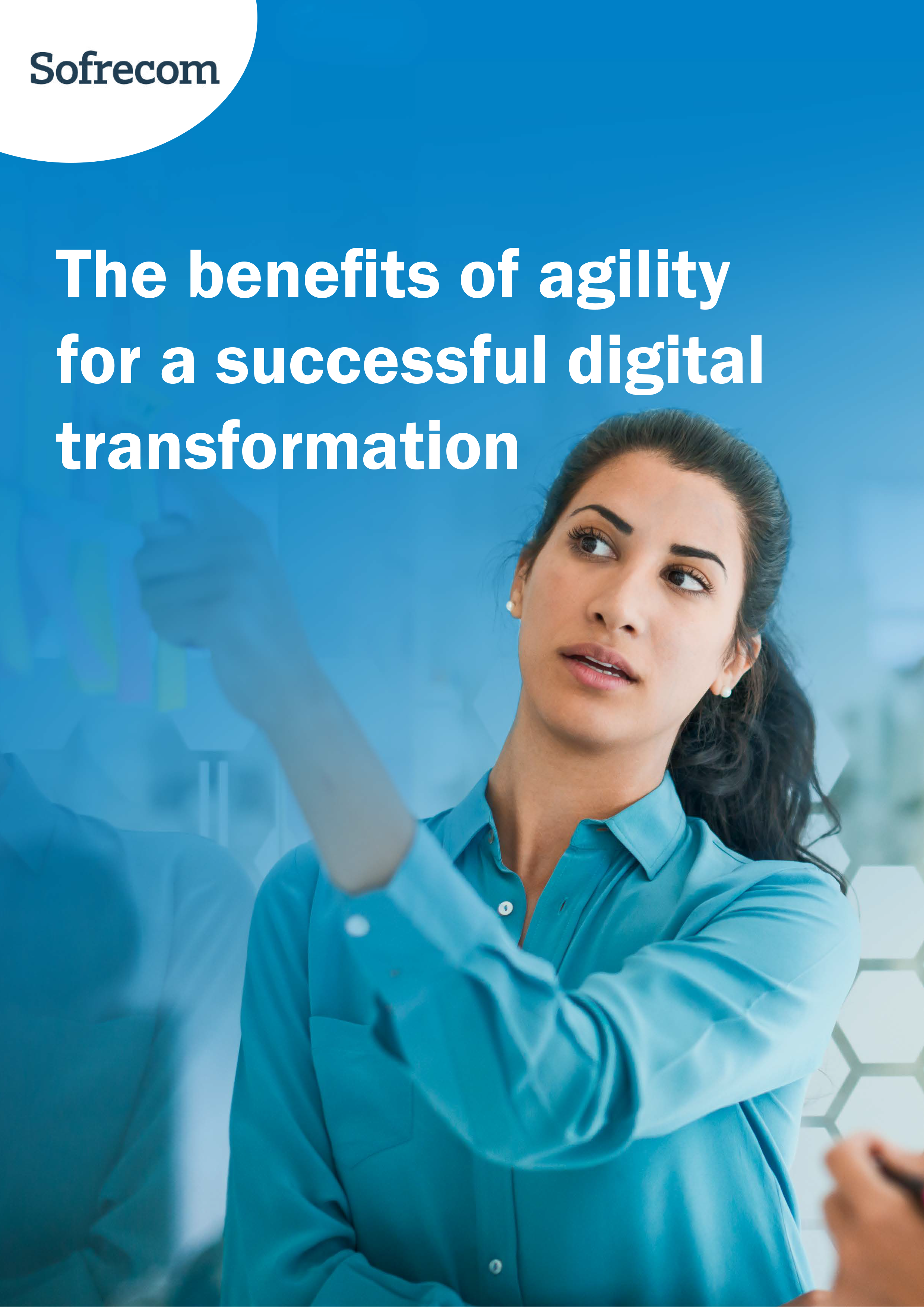
The digital revolution is profoundly reshaping the economy and the world of work — but above all, it is a cultural and managerial revolution. To survive, organizations are adapting their operating models, relying on both innovation and collective agility, which Orange defines as customer orientation, cross-functional collaboration, and the development of initiative.
The cultural transformations required to place these practices at the heart of organizations, while driven by top management and HR departments, must be supported by middle management.
The demand for new managerial skills
The manager’s role is changing and evolving. Companies expect new skills that enable managers to foster a culture of innovation and agility:
- A mindset open to innovation and agility challenges — personally embracing these concepts, encouraging initiative, cross-functional collaboration, and risk-taking;
- The ability to drive new practices and create empowering environments where:
- “Clearly identified processes, combined with people’s creativity, allow for the expression and transformation of ideas into innovation”;
- One can shift from “knowing how to act” to “being able to act” and “wanting to act” to ensure agility in the face of new situations.
This evolution requires moving beyond the prescriptive and technically expert manager, toward the posture of a coach or facilitator.
An analysis of how "liberated companies" operate (Favi, Poult, Pixar, to name just a few) highlights the managerial behaviors expected. The focus is on welcoming and encouraging creativity by engaging all talents and motivating each employee to contribute. This is done through rituals and dialogue that foster innovation. It involves trusting people and reducing control to free up speech, initiative, and risk-taking.
Establishing trust and empowering employees means being clear about what is expected from them so that each person becomes both the author and the actor of their own fulfillment and professional performance. In this regard, the principle of subsidiarity — where responsibility lies with the person closest to the issue — is essential and must be carried through entirely (including responsibility for resolving one’s own mistakes).
Digital transformation breaks down silos, encouraging managers to collaborate not only within their teams but across entities through networked work (organized around skills) rather than traditional team structures (organized around authority). It also enhances communication across hierarchical levels.
Ultimately, in a constantly changing environment, the manager’s added value will lie in their ability to boost employees' responsiveness and focus on addressing real problems rather than hypothetical ones.
These are new ways of working for many companies and require managers to develop stronger interpersonal skills and a greater capacity to manage uncertainty and ambiguity. According to Réal Jacob, today’s manager should be “T-shaped”: an expert in their field and also skilled in interpersonal areas like negotiation, coordination, empathy, and the ability to recognize others’ contributions.
Levers for evolving toward new models of management
So what are the levers organizations can use to help current and future managers — regardless of experience — develop these new skills and adopt these new models?
These levers are still evolving, but three main approaches can already be identified:
-
Individual reflection and analysis by managers
Pascale Fotius recommends "encouraging analysis of problematic situations encountered by managers to identify the resources needed to act collectively on anything that limits their ability to support and regulate management (‘impeded management’)."
This personal reflection can be initiated by HR, whose role now more than ever is to drive and support transformation. Beyond large-scale programs, it is through individual relationships that HR professionals build with managers that this reflection can take root. Therefore, self-reflection and critical thinking have become essential competencies, especially during recruitment and in management frameworks — they are the foundation for acquiring all other skills.
-
Collective exchanges on the topic
ANACT (France’s National Agency for the Improvement of Working Conditions) stresses the need for spaces where employees can discuss and reflect on their work, and “analyze the perceptions of what hinders, slows, accelerates or enables activity, based on the individual, collective, and organizational resources available to them.”
This reflection should occur individually and collectively — through training, co-development workshops, or practice-sharing groups that focus more on co-construction than top-down transmission.
Other tools include feedback loops, such as Orange’s WorkLab, which analyzes new working methods and hosts café-partages to share stories and prompt reflection on initiatives taken in different Orange regions and units. Events like this can be specifically designed for managers.
-
Experimentation
It is essential to let managers experiment so they can see the value of new practices and have the tools to implement them. Transformation often happens in a test and learn mode.
“Learning expeditions” and “job shadowing” (vis-ma-vie) are ideal in this respect (e.g., L’Oréal’s executive team visited Google, Vente Privée, Amazon, Webedia).
Managers should also be actively involved in innovation programs within their companies — in a variety of roles — to help them adopt the culture.
Providing managers with tools (human or otherwise) to continue their reflections and take action on them is critical. One-off thinking sessions are unlikely to have lasting impact: this is a long-term journey. Peer mentoring across organizations, or ongoing support from HR, coaches, or trainers, are also valuable. Microsoft, for example, has established “manager communities” that allow them to test new practices together.
Very practical tools like Orange’s “toolbox” — which includes ready-to-use guides on new ways of working (such as agile practices) — are invaluable in helping managers make real, lasting change.
The change in mindset expected from both managers and employees in the digital revolution is significant. Not everyone will adopt this mindset immediately — it takes time and sustained support. The effort involved, which weighs more heavily on operational teams, must be accompanied by an equally deep transformation of support functions, particularly the processes they implement.
Lastly, a proper organizational analysis should identify the most strategic teams that need to evolve first — giving others the time to adapt and embrace the shift.






